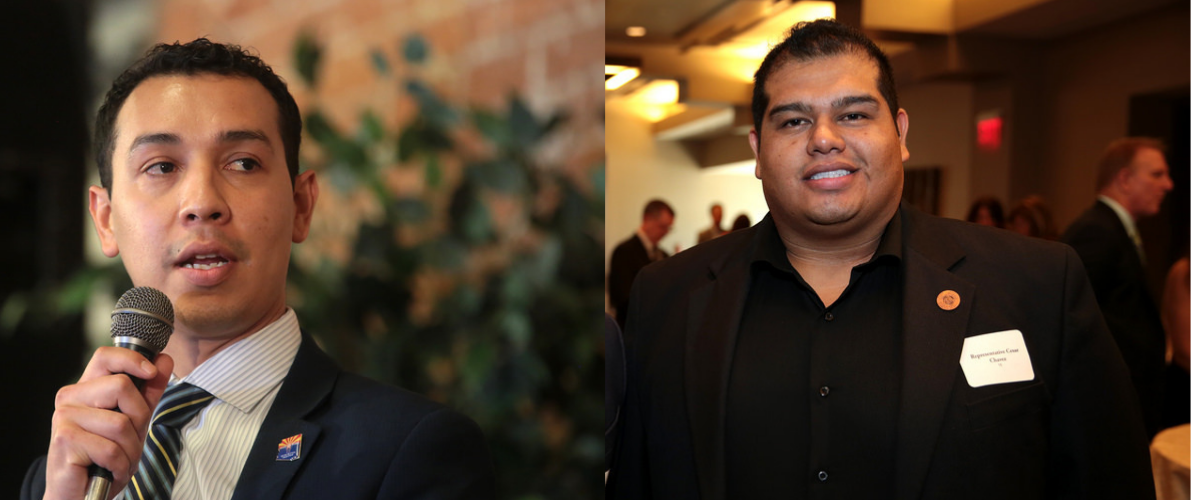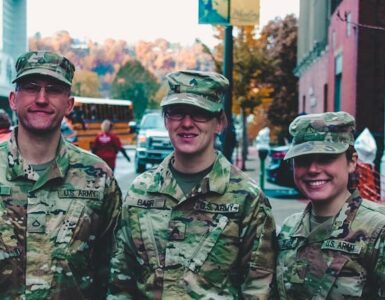Two emerging political leaders who came from modest beginnings in west Phoenix are now state legislators representing the two largest Hispanic districts in Arizona.
Homegrown Rep. César Chávez and Sen. Otoniel “Tony” Navarrete are also the new co-chairs of the bipartisan Arizona Latino Caucus, which advocates for the state’s Hispanic citizens and businesses.
The duo is ready to launch a new era of leadership in Arizona to address Latino concerns, they told Chamber Business News.
“This year we really want to amplify the voice of the Latino population. The Latino economic force is far stronger than anyone realizes, bringing in billions of dollars to Arizona,” said Chávez, D-Phoenix (LD-29). “We should always be at the table to better affect the Latino population.”
Supporting Hispanic businesses and economic development, providing pathways to employment, and expanding career education and college opportunities are top priorities for the caucus this legislative session, said Chávez and Navarrete.
“Our priority is to make sure we are moving our focus to our small businesses and entrepreneurs so they have the ability to grow and make Arizona their headquarters,” said Navarrete, D-Phoenix (LD-30). “It’s super important to find out what barriers there are and determine how we move forward. We know big business is coming here to hire employees. How do we take advantage of these opportunities?”
The Caucus consists of 27 members from the House and Senate who hold strategic leadership positions.
Chávez and Navarrete are ranking members on the House and Senate Commerce Committees. Both are members of the national Hispanic Caucus of State Legislators and the co-founders of the Arizona LGBTQ Caucus. Both are children of immigrants.
They listed several top priorities for the caucus in 2019:
Entrepreneur tools Latino businesses, particularly women-owned enterprises, are opening businesses here at a faster rate than most other states. While their numbers are sprouting, their profits are lagging behind their Anglo counterparts.
“We want to make sure they have the tools they need and business plans to catapult their businesses and put them in position where they can tap into trade opportunities with Mexico, California and Canada,” Navarrete said.
Transportation infrastructure Promoting investment in transportation and industry corridors, particularly in the West Valley, will accelerate commerce in Arizona and strengthen trade opportunities for Latino business owners.
“With Mexico being our largest trading partner and with the border being in our territory, we have to have the ability to trade efficiently and effectively,” Chávez said. “As a caucus, it is critical we have the resources for business to grow and make sure we’re laying down the framework to make sure the transportation corridor can handle trade for decades to come.”
University graduation A push for more affordability and acceptability into four-year university programs will be a major effort this year.
The caucus also supports more investment in Career and Technical Education (CTE) to produce skilled workers and create a bridge to universities.
“A little over 9 percent of freshman Latinos are graduating with a four-year degree,” Navarrete said. “Quite frankly, we’re not funding education enough so we have a lot of work to do. When you look at statistics across the country, Arizona is below average in postsecondary attainment. We want to give our teachers raises that they need and provide adequate program dollars to move our students from being below national average to average or above.”
Accurate census A stigma about speaking to census pollsters in the Latino community has kept their true numbers hidden, short changing neighborhoods of critical funding, Chávez said.
The caucus wants to expand education and outreach to ensure more Hispanics are counted in the 2020 U.S. Census. The census helps determine U.S. elections, congressional seats and federal funding decisions for the next decade.
“We want to make sure that every person is counted and that the proper resources are going to Latino communities,” Chávez said.
















Add comment